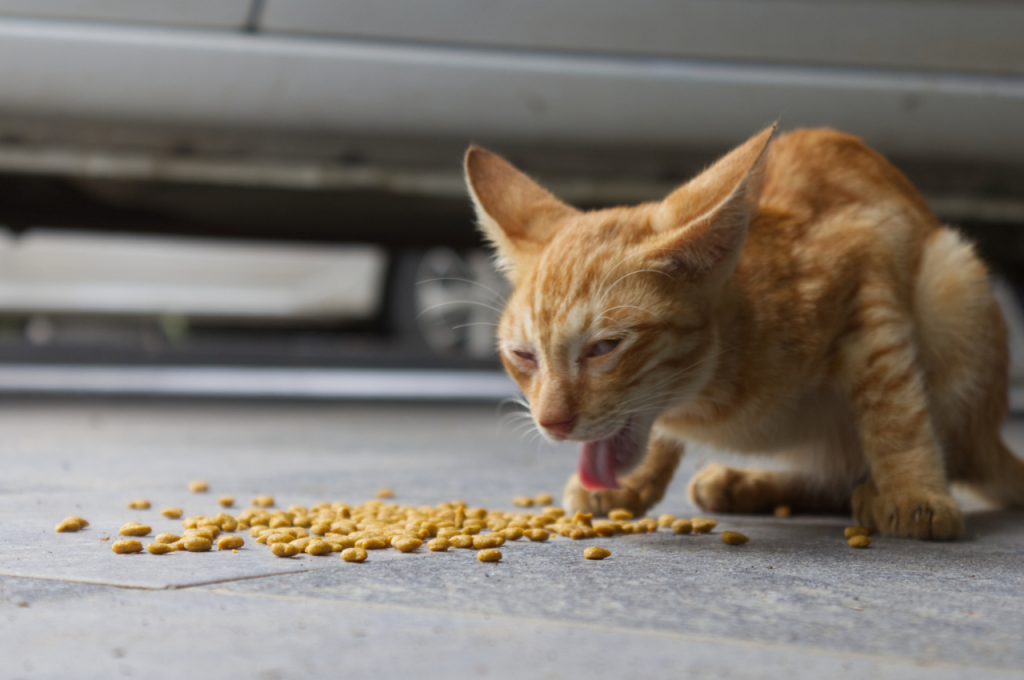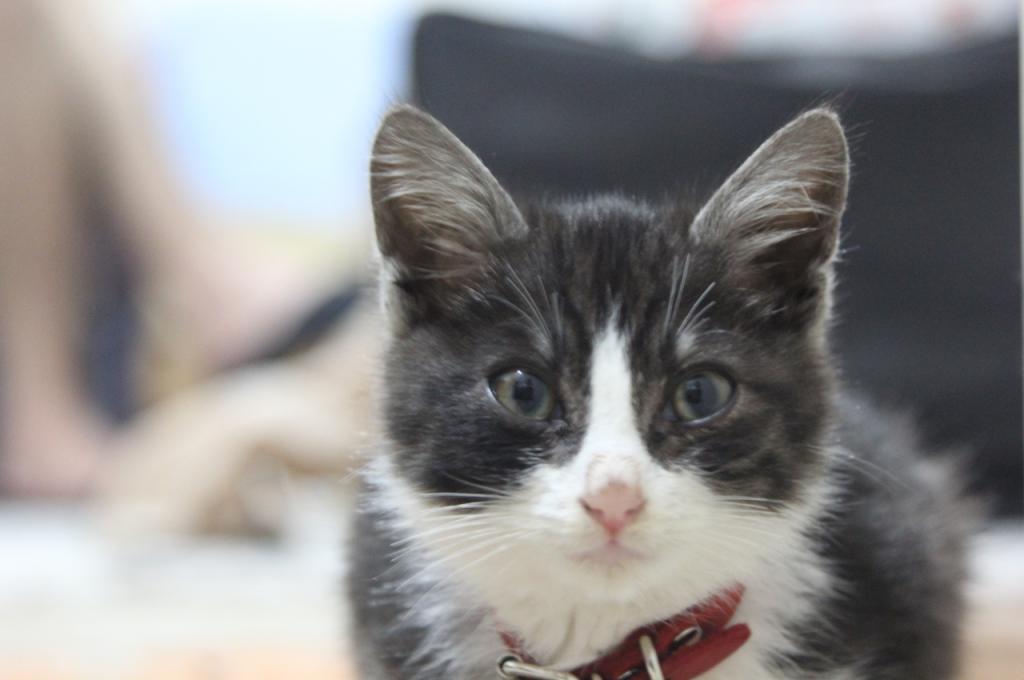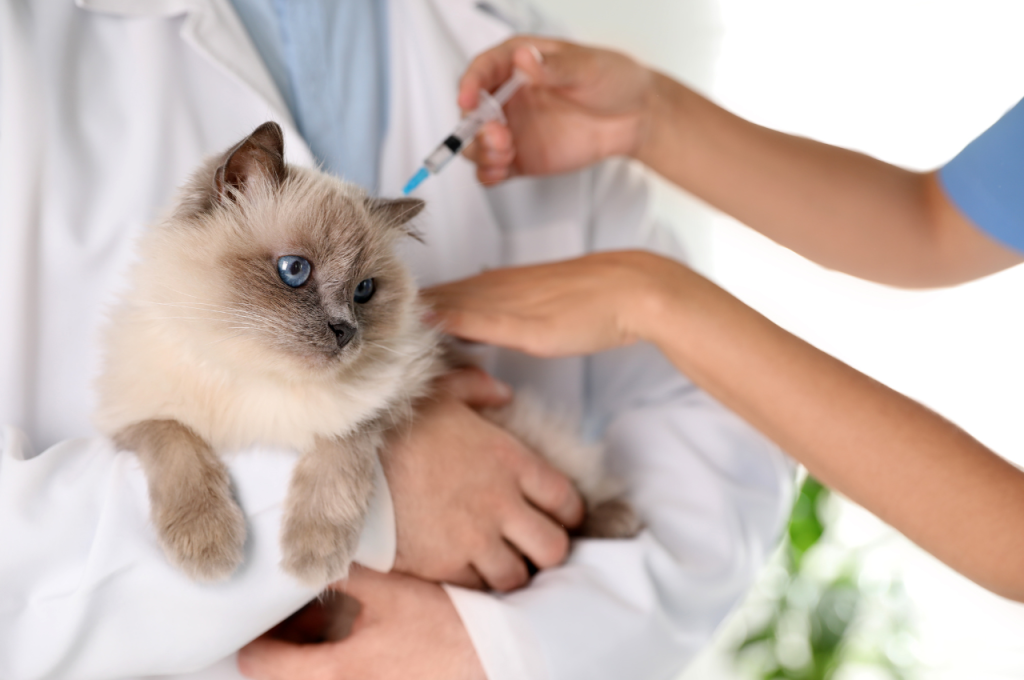Cats vomit due to illnesses such as hairballs, infections, kidney disease, and pancreatitis. Vomiting is a common symptom in cats that can be caused by various health issues.
It is essential to pay attention to your cat’s vomiting habits and seek veterinary advice if it persists or is accompanied by other concerning symptoms. Understanding the potential illnesses that may lead to vomiting in cats can help you provide timely care and treatment for your feline companion. In this blog post, we will explore some of the common illnesses that can cause cats to vomit and discuss how to best support their health and well-being. Let’s dive in and learn more about this important topic for cat owners.
Introduction To Feline Vomiting
Feline vomiting is a common concern for cat owners, and understanding the potential causes can help in addressing this issue effectively. Vomiting in cats can be a symptom of various underlying illnesses, and it’s crucial to be aware of the common misconceptions surrounding this issue. Additionally, paying attention to the frequency and characteristics of your cat’s vomiting is essential for identifying potential health problems early on.

Common Misconceptions
One common misconception about feline vomiting is that it’s normal for cats to vomit frequently. However, frequent vomiting can indicate an underlying health issue that requires attention. Another misconception is that hairballs are the primary cause of vomiting in cats. While hairballs can contribute to vomiting, they are not the sole cause, and other factors must be considered.
Why It’s Important To Pay Attention
Understanding the importance of paying attention to your cat’s vomiting behavior is crucial for their overall health. Regular vomiting can be a sign of serious illnesses such as kidney disease, liver problems, or gastrointestinal issues. By closely monitoring your cat’s vomiting patterns and seeking veterinary care when necessary, you can help prevent potential health complications and ensure your cat’s well-being.
Dietary Causes Of Vomiting In Cats
Vomiting in cats can be caused by various factors, and one of the primary reasons is related to their diet. Understanding the dietary causes of vomiting in cats is crucial for pet owners to ensure their feline companions remain healthy and happy. In this section, we will delve into the different dietary factors that can lead to vomiting in cats, including the ingestion of foreign objects and food intolerances and allergies.
Ingestion Of Foreign Objects
Cats are curious creatures and may ingest foreign objects, such as hairballs or pieces of toys, which can irritate their stomach lining and lead to vomiting. This behavior is particularly common in indoor cats, and pet owners should be mindful of the objects their cats have access to.
Food Intolerances And Allergies
Some cats may develop intolerances or allergies to certain ingredients in their food, leading to vomiting as a symptom. Common culprits include dairy products, grains, and artificial additives. It is important for pet owners to monitor their cats’ diet and be aware of any adverse reactions that may occur.
Infectious Diseases That Cause Vomiting
When it comes to cats, vomiting can be a sign of various health issues, including infectious diseases. These illnesses are caused by pathogens that invade the cat’s body, leading to a range of symptoms, including vomiting. In this section, we will explore two common infectious diseases that can cause cats to vomit: Feline Panleukopenia and Feline Immunodeficiency Virus (FIV).
Feline Panleukopenia
Feline Panleukopenia, also known as feline distemper, is a highly contagious viral disease that affects cats. It is caused by the feline parvovirus, which primarily targets rapidly dividing cells, such as those found in the bone marrow, intestines, and lymphoid tissues. This disease can be particularly dangerous for young kittens and unvaccinated cats.
Some common symptoms of Feline Panleukopenia include:
- Vomiting
- Diarrhea
- Loss of appetite
- Dehydration
- Fever
- Depression
If you notice these symptoms in your cat, it is crucial to seek veterinary attention immediately. Feline Panleukopenia can be fatal if not treated promptly and effectively. Vaccination is the best way to prevent this disease.
Feline Immunodeficiency Virus (FIV)
Feline Immunodeficiency Virus (FIV) is a retrovirus that weakens a cat’s immune system, making them more susceptible to various infections. It is primarily transmitted through deep bite wounds during fights between infected and non-infected cats. FIV is more common in outdoor cats who engage in territorial disputes.

While vomiting may not be a direct symptom of FIV, it can occur as a result of secondary infections or gastrointestinal issues associated with the weakened immune system. Other symptoms of FIV include:
- Weight loss
- Loss of appetite
- Lethargy
- Recurrent infections
- Enlarged lymph nodes
- Oral and dental problems
It is important to note that FIV cannot be cured, but proper management can help improve the cat’s quality of life. Regular veterinary check-ups, a balanced diet, and a stress-free environment are essential for cats living with FIV.
By understanding these infectious diseases and their associated symptoms, you can better identify when your cat may be experiencing vomiting due to an underlying health issue. If you suspect your cat is unwell, always consult with a veterinarian to ensure proper diagnosis and treatment.
Parasitic Infections Leading To Vomiting
Cats can experience vomiting due to various illnesses, and parasitic infections are one of the common culprits. These infections can lead to discomfort and digestive disturbances in our feline friends. Understanding the specific parasitic infections that may cause vomiting in cats can help in timely diagnosis and treatment.
Worm Infestations
Worm infestations are a leading cause of vomiting in cats. Roundworms, hookworms, and tapeworms are among the most common intestinal parasites that can affect cats. These parasites can lead to vomiting, diarrhea, weight loss, and a dull coat in affected cats. Identifying and treating these worm infestations promptly is crucial for the well-being of the feline companions.
Protozoal Infections
Protozoal infections can also contribute to vomiting in cats. Giardia and Toxoplasma gondii are examples of protozoal parasites that can cause gastrointestinal issues, including vomiting, in infected felines. These infections can be particularly concerning as they may also pose risks to human health. Therefore, early detection and appropriate management of protozoal infections are essential for both feline and human welfare.
Chronic Conditions And Vomiting
Chronic conditions can often be the culprit behind a cat’s vomiting. These illnesses are ongoing and can affect a cat’s digestive system, leading to frequent bouts of vomiting. Here are two common chronic conditions that can cause cats to vomit:
Kidney Disease
Kidney disease is a common chronic condition in cats, particularly in older cats. The kidneys are responsible for filtering waste and excess fluids from the blood, and when they don’t function properly, toxins can build up in the body. This can cause a range of symptoms, including vomiting. Cats with kidney disease may also experience increased thirst, weight loss, and lethargy.
Inflammatory Bowel Disease (IBD)
Inflammatory Bowel Disease (IBD) is a condition that causes inflammation in a cat’s digestive tract. This inflammation can lead to a range of symptoms, including vomiting, diarrhea, and weight loss. IBD can be difficult to diagnose, as its symptoms can be similar to those of other digestive conditions. However, a veterinarian can perform tests to determine if a cat has IBD and develop a treatment plan to help manage the condition.
In conclusion, it is important to take your cat to the veterinarian if they are vomiting frequently or showing other signs of illness. Chronic conditions such as kidney disease and IBD can be managed with proper treatment, but early diagnosis is key.
Toxic Substances And Their Effects
Cats are susceptible to vomiting due to various illnesses and toxic substances they may encounter. Understanding the effects of toxic substances on cats is crucial for their well-being.
Household Toxins
Common household toxins can lead to vomiting in cats.
Toxic Plants
Toxic plants pose a serious threat to cats, causing them to vomit.
Psychological Factors
Psychological factors can also contribute to cats vomiting, with stress and behavioral issues playing a significant role.
Stress-induced Vomiting
Stress can lead to vomiting in cats due to their sensitive nature.
Behavioral Issues
Behavioral problems like anxiety may result in vomiting episodes in cats.
When To Seek Veterinary Care
For cats vomiting, seek vet care if it persists or is accompanied by lethargy, diarrhea, or blood. Common illnesses causing vomiting include hairballs, dietary indiscretion, infections, or pancreatitis. Early veterinary intervention can help diagnose and treat underlying issues promptly.

Conclusion
To summarize, there are several illnesses that can cause cats to vomit. These include gastrointestinal issues like gastritis and pancreatitis, as well as infections, parasites, and even certain medications. It’s important to monitor your cat’s vomiting episodes and seek veterinary advice if necessary.
Understanding the underlying causes can help in providing proper treatment and care for your feline friend. Always consult with a veterinarian for accurate diagnosis and guidance.
